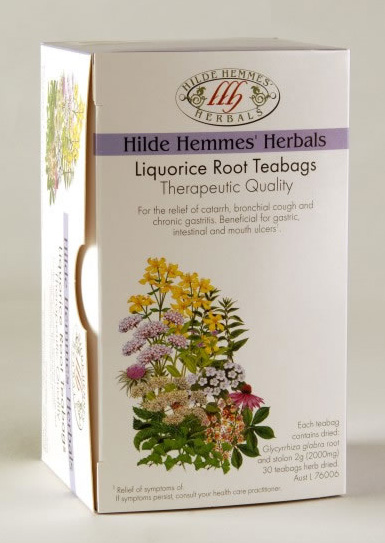
S$13.50
Product of Australia
History reveals that liquorice was first documented in Assyrial clay tablets (c.a. 2500 B.C.E.) and Egyptian papyri.
In Germany, liquorice root is licensed as standard medicinal tea for the relief of bronchial cough due to bronchial congestion in the upper respiratory tract.
The main active substance is glycyrrhizinic acid, which has shown to accelerate the healing of gastric ulcers. The root naturally contains at least 4% glycyrrhizin, a compound that is about fifty times sweeter than sucrose.
I have included liquorice root in my herbal teabag range because it is a valuable alternative for the natural relief of gastric and intestinal ulcers. As a tea it makes an excellent adults-only herbal remedy for the relief of pain and discomfort of cramp-like disorders associated with chronic gastritis.
Medicinal Use
Take to relieve cough symptoms due to bronchial congestion and catarrh in the upper respiratory tract, pain/discomfort of cramp-like disorders associated with chronic gastritis.
Clincally, liquorice has been shown to promote the healing and relief of symptoms of mouth, gastric and intestinal ulcers.
Claims are based on traditional use in western herbal medicine.
Active Ingredients
Contains Liquorice (Glycyrrhiza glabra) root and stolon dry:
* 2 g per teabag
* 1.9 g per 5 mL level metric spoon
Volume: 30 Teabags
Features / Benefits
* Listed with the Therapeutic Goods Administration (TGA) as a herbal medicine.
* Contains appropriate information based on latest findings.
* Contains no artificial colours, preservatives, caffeine, gluten or lactose.
* Suitable for vegans and vegetarians.
* Teabags are packed in long-life foil bags to retain freshness and potency.
* Least expensive way of taking a herbal medicine
